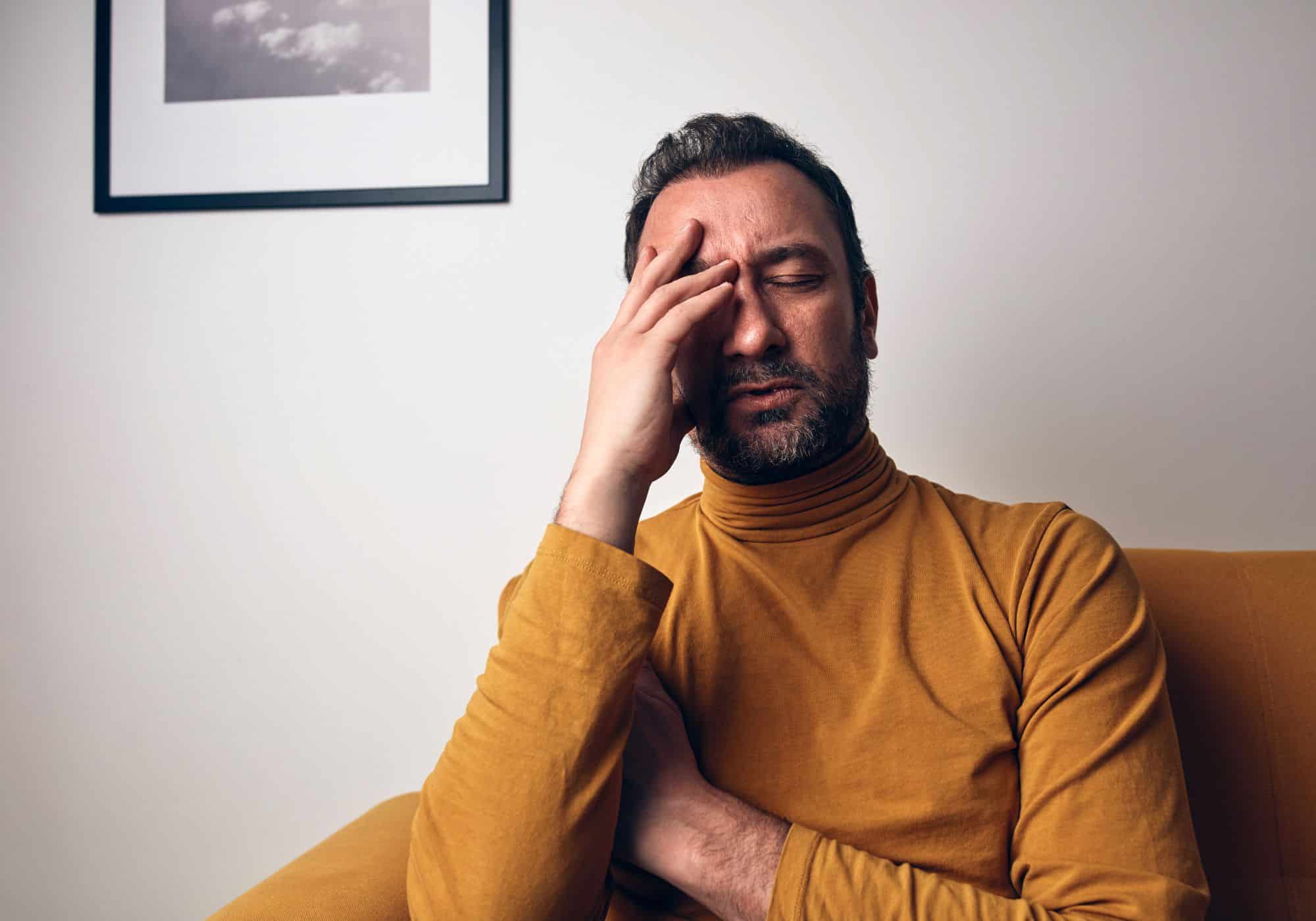Stress and Anxiety Can Have a Profound Effect on Our Physical Health
One of the main ways our mental well-being can influence our body is through blood pressure. When life’s pressures weigh on us, it’s easy to forget how significantly stress and anxiety can affect the cardiovascular system. For some, this may lead to a sharper spike in blood pressure readings during moments of high tension or worry.
It’s not unusual to experience occasional stress, but prolonged mental strain can create a ripple effect that touches other areas of wellness. This article looks at how anxiety might cause high blood pressure, what that means for people’s general health, and how you can manage anxiety-related spikes in blood pressure. If you’re dealing with anxiety or concerned about your blood pressure, understanding the link between the two could be a key step toward finding the right support, possibly including outpatient mental health treatment in Atlanta.
How Stress and Anxiety Can Build Over Time
Stress rarely shows up out of nowhere. Often, it accumulates over weeks or months, like a slow drip filling a bucket until it overflows. Small daily irritations—such as a tight work deadline or constant financial concerns—may not seem like much on their own. But together, they can lead to chronic stress if we don’t find healthy outlets.
Chronic stress doesn’t only disrupt mental peace; it can also hurt our physical body. For example, it can boost production of a hormone known as cortisol. Elevated cortisol has been linked to weight gain and higher blood pressure, both of which heighten the risk of heart complications such as heart disease. The American Heart Association has pointed out that a chronically stressed mind can end up contributing to depression or intense anxiety as well.
When you add anxiety to the mix, you may notice tension headaches, difficulty sleeping, or mood swings. Instead of a short burst of pressure that passes quickly, chronic anxiety can become an everyday companion. Over time, living in that heightened state can strain the heart and blood vessels, putting you at increased risk for conditions like heart attack or stroke. It’s a potent reminder that mental health and physical health are interconnected.
High Blood Pressure and Anxiety: How Are They Related?
When you feel anxious, your body may respond by releasing hormones that temporarily constrict blood vessels, speed up your heart rate, or shift blood flow. This is the classic “fight, flight, or freeze” response. While this reaction can be useful if you’re truly in danger, it can lead to short-term jumps in blood pressure.
Some studies show that people with chronic anxiety might face a higher chance of also developing high blood pressure (hypertension). On the flip side, people who already have hypertension seem to show a greater risk of anxiety than the general population. That’s not surprising, considering the stress of managing a serious health condition, along with concerns about medication and long-term prognosis.
Healthcare professionals usually encourage people with high blood pressure to talk about stress and anxiety levels. Taking steps that help control blood pressure—like exercising regularly or improving diet—can also reduce anxiety. The same is true in reverse: Managing anxiety through therapy, meditation, or medication may help keep blood pressure from spiking as often. Each condition benefits from consistent follow-up and the potential use of medication, therapy, or lifestyle adjustments.
What Is Blood Pressure?
Blood pressure is a key measure of your overall health. It shows the force of circulating blood as it pushes against the walls of arteries. These readings are typically presented in millimeters of mercury (mmHg).
You get two numbers:
- Systolic pressure (the top number): The pressure in your arteries when your heart actively pumps blood.
- Diastolic pressure (the bottom number): The pressure in your arteries when the heart rests between beats.
A typical healthy range is between 90/60mmHg and 120/80mmHg, according to some guidelines. When numbers stay above a certain threshold—often 130/80mmHg or higher—it’s considered elevated. While many factors influence blood pressure, from genetics to daily habits, mental health can also play a part.
Can Anxiety Cause High Blood Pressure?
Can anxiety cause high blood pressure? Research says anxiety can indeed temporarily raise blood pressure. Think about the last time you felt scared or extremely nervous. Your heart might have raced, your palms got sweaty, and you felt on edge. That’s a direct effect of stress hormones like cortisol and adrenaline. The body’s blood vessels narrow, the heart pumps faster, and in turn, your blood pressure spikes.
Anxiety triggering a short-lived elevation in blood pressure is well known. However, these increases typically subside after you calm down. The real question many wonder is whether ongoing anxiety can cause chronic high blood pressure. While the direct link between long-term hypertension and anxiety isn’t fully clear, repeated spikes, along with other factors (like unbalanced diet or lack of exercise), can contribute to cardiovascular strain. The bottom line is that feeling continuously anxious day after day can keep your body in a tense mode, increasing the possibility of heart-related issues over time.
Can High Blood Pressure Cause Anxiety?
It’s also possible for the connection to move in the other direction: People living with high blood pressure might become anxious about their health. Maybe they’re nervous about potential complications like stroke or heart disease. That persistent fear can become another source of stress, leading to a cycle—hypertension worsens anxiety, and anxiety may make it harder to manage hypertension effectively.
This cycle arises in a few ways:
- Heightened health concerns: Receiving a hypertension diagnosis often comes with doctor visits, lifestyle changes, and medication. Worries about these changes can spark or worsen anxiety.
- Physical symptoms: Some people with high blood pressure experience headaches, shortness of breath, or dizziness. Interpreting these as severe risks can add to emotional distress.
- Medication side effects: Certain blood pressure meds can cause sensations like a racing heartbeat or jitteriness. This can trigger anxious thoughts, making you feel something is seriously wrong.
Additionally, it’s human nature to feel overwhelmed when told you have a medical condition needing long-term monitoring. The unknowns can create anxiety, especially if you have a family history of heart problems. The key is to manage both conditions as part of a bigger plan rather than tackling them in isolation.
How Much Can Anxiety Raise Blood Pressure?
The amount anxiety can raise blood pressure varies from person to person, influenced by factors like overall fitness, health habits, and stress triggers. In intense cases, such as panic attacks, systolic blood pressure might shoot up by 20 to 30 mmHg. That’s a notable jump, and while temporary, it shows how dramatically emotional states can affect the body’s cardiovascular response.
Think of it this way: if your typical pressure is near 120/80, a short burst of intense worry might push it closer to 150/90 or beyond. This spike usually subsides once you relax, but it’s still a jolt your cardiovascular system has to handle. If you have these surges often—like multiple times a day, every day—the repeated strain on arteries and the heart might become detrimental over time.
Can Anxiety Treatment Affect Blood Pressure?
Treatment for anxiety can come in many forms—counseling, medication, lifestyle changes, or a combination of approaches. Any of these can influence blood pressure to an extent.
- SSRIs (Selective Serotonin Reuptake Inhibitors): These medications can help balance mood but usually have minimal direct impact on blood pressure.
- SNRIs (Serotonin and Norepinephrine Reuptake Inhibitors): According to some data, SNRIs might slightly raise blood pressure, so doctors often keep an eye on readings if you’re prescribed them.
- Therapy and relaxation techniques: By lowering overall stress, these strategies can reduce how often blood pressure spikes.
- Exercise regimens: Often recommended for anxiety, regular physical activity also supports heart health, potentially lowering chronic blood pressure.
If you’re on any medicine for anxiety or high blood pressure, it’s wise to track how you feel. Keep an eye on readings if you suspect a new prescription is affecting your blood pressure. Talk to a healthcare provider if you notice changes. They can adjust dosages or switch you to a more suitable treatment plan.
How to Bring Anxiety-Related Blood Pressure Down Quickly
If you sense your blood pressure climbing alongside waves of worry, there are steps you can take to manage the moment.
These are immediate measures that can help:
- Deep Breathing: Take slow, measured breaths, focusing on filling your belly with air, then exhaling fully. This counteracts the stress response and lowers both heart rate and blood pressure.
- Grounding or Distraction: Engage your mind with something present, such as naming objects around you or feeling the textures in your environment. Directing attention away from anxious thoughts can break the cycle of escalating worry.
- Progressive Muscle Relaxation: Systematically tense and relax muscle groups. Start from your feet and move upwards. This method reduces physical tension and lessens the intensity of anxiety.
- Mindfulness and Meditation: A short burst of mindfulness—closing your eyes, focusing on your breath, and letting thoughts drift without judgment—helps calm the nervous system.
- Limit Stimulants: If you’re already anxious, stepping away from coffee or energy drinks can prevent further spikes in heart rate or blood pressure.
- Accept the Feelings: Sometimes, acknowledging “I’m anxious right now, but I’ll be okay” can diminish the fear. Realizing that anxiety is a state that comes and goes may soften its impact.
These fast-acting methods won’t solve anxiety for good, but they can get you through episodes where your blood pressure shoots up briefly. Repeatedly practicing these techniques can teach your body how to settle faster in stressful moments.
Long-Term Strategies for Managing Anxiety and Blood Pressure
Short-term fixes have their place, but lasting relief often demands a broader plan.
These strategies aim to reduce the frequency and intensity of anxiety, which, in turn, helps maintain a more stable blood pressure:
- Regular Exercise: Activities like brisk walking, jogging, cycling, or dancing boost cardiovascular health and reduce tension. Even 20 to 30 minutes a day can improve mood and help regulate blood pressure.
- Balanced Diet: Emphasizing whole grains, fruits, vegetables, and lean proteins can benefit both mind and body. High sodium or excessive processed foods can aggravate hypertension, so a healthier meal plan can keep both anxiety and blood pressure in check.
- Consistent Sleep Routine: Getting 7-9 hours of good sleep is vital for mental resilience. Poor sleep can spike stress hormones, making your heart work harder over time.
- Professional Guidance: If your anxiety or blood pressure is severe or unresponsive to basic self-care, seeking support from a mental health professional or doctor is key. Therapies like cognitive behavioral therapy (CBT) teach you how to face fear triggers in new ways, while solutions like medication might also be an option.
- Mindful Lifestyle: Practicing yoga or learning mindfulness-based stress reduction fosters better awareness of bodily cues, so you can spot early signs of tension and respond calmly.
- Ongoing Check-Ins: Regular appointments with healthcare providers ensure both your mental and physical health are monitored. This is especially true if you’re living with hypertension or a history of serious anxiety.
It’s also important to remember that not every strategy will feel right for everyone. Some might find relief by walking outdoors, while others might need structured therapy sessions or specialized interventions. The key is to stay open to trying different approaches until you find the right fit.
If anxiety or stress is affecting your well-being—especially if you’re worried about blood pressure—don’t wait. Contact Hooked on Hope Mental Health at 470-287-1927 or via our online contact form to explore personalized strategies that support both mind and body. You deserve a healthier, calmer life.
Begin Your Journey to Overcome Anxiety in Atlanta Today
Reclaim control of your life from anxiety with the guidance of Hooked on Hope Mental Health. At our Atlanta location, we offer caring, tailored treatment using proven therapies. Our dedicated team will stand beside you through each stage of healing, helping you conquer anxiety with effective strategies. Contact us now at 470-287-1927 or via our online contact form and take the first step toward a calmer, more fulfilling future. Together, we’ll craft a plan to restore peace of mind and improve your well-being.








